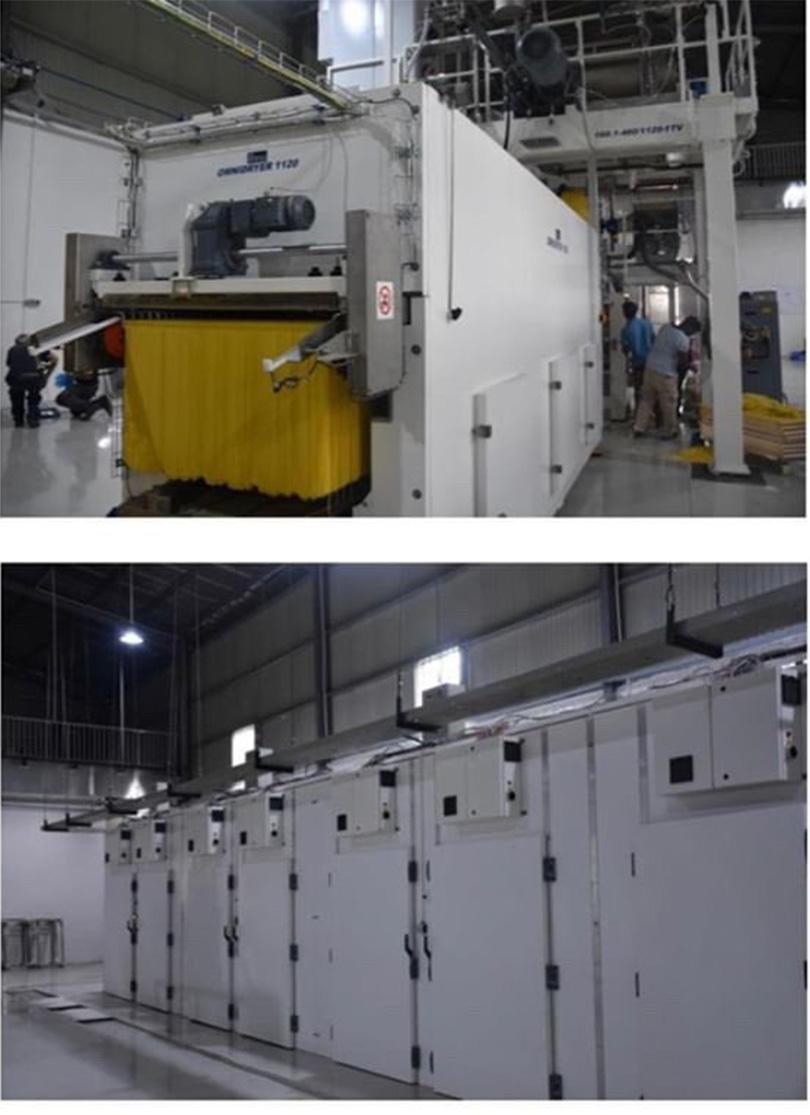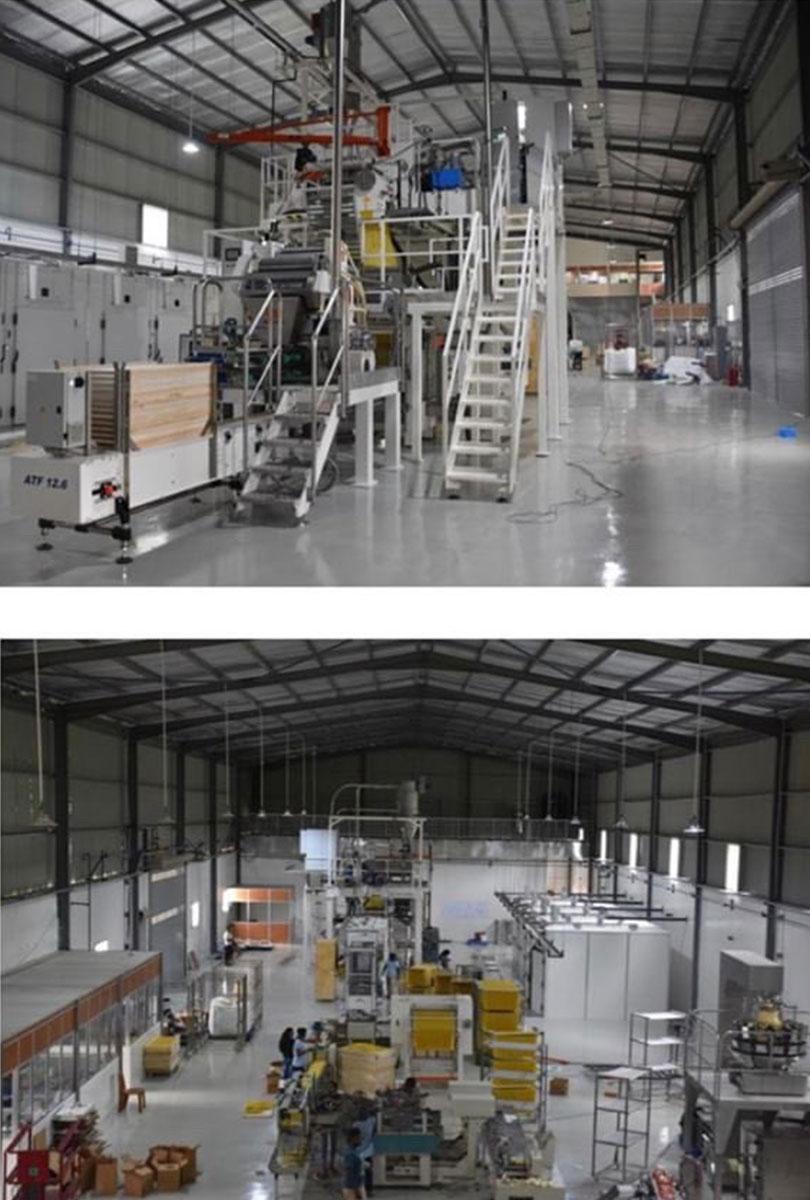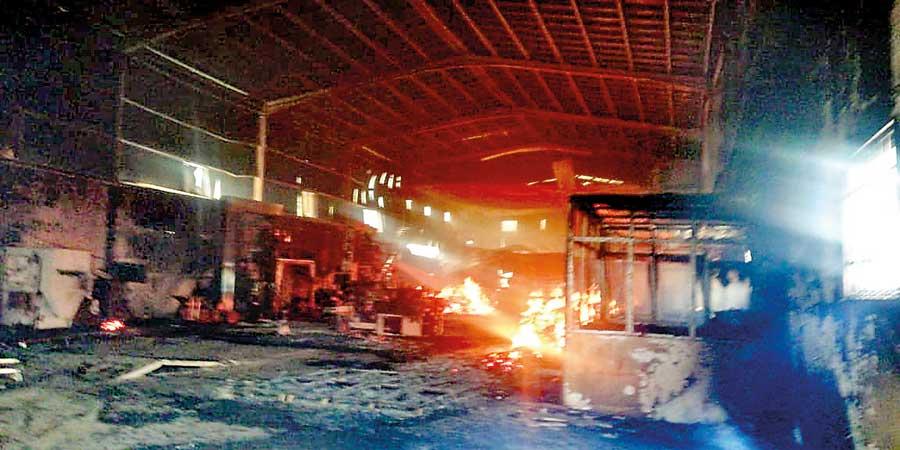Reply To:
Name - Reply Comment
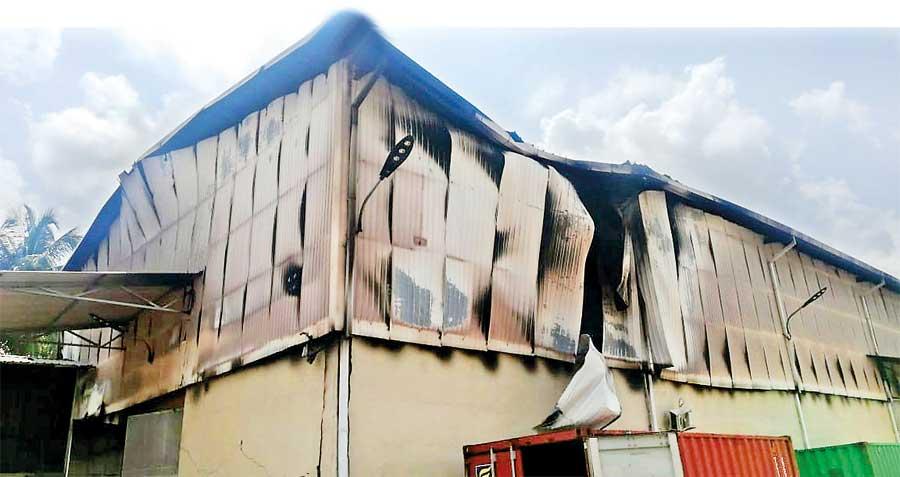
The country’s largest pasta manufacturing facility was destroyed by mobs in Minuwangoda
As mob violence erupted in Minuwangoda on May 13, fire ripped through the country’s largest pasta manufacturing facility, endangering the lives of seven employees present at the time. Diamond pasta, a sister company of the PMM Group of companies which has been operating in food manufacturing and sales for five decades, was a target in the worst outbreak of sectarian violence Sri Lanka has witnessed in a decade.
Three weeks following the deadly Easter Sunday attacks, hard-line Buddhist groups attacked dozens of Muslim-owned businesses and vandalised mosques in several areas of the country. In Minuwangoda, 9 suspects were arrested in connection with the riots, despite reports of well organised mobs numbered in hundreds, wreaking havoc across the town.
Speaking to the Daily Mirror the proprietor of Diamond Pasta Limited Ali Jisthy said that proceedings to set up the factory in 2017 were unhindered, barring an isolated incident. “In 2018, there was a racial slur spray painted outside our factory.
At this time we felt that there was a possibility of one or two dissentients being around. But we always maintained good contacts with the police in the area, and we experienced no trouble in the months that followed,” he said. Asked if they had to overcome any apprehension from the community, when trying to set up a factory, the management said that there was no cause for worry at the time. “People usually have a distrust of corporations. So we took it in our stride, assuming that one or two people were in disagreement with us. There was no cause for concern as we employed people from the area at Diamond pasta.”
The management stated that Diamond Pasta believed in diversity, adding that the majority of its employees were Sinhala. “Our company has always been a diverse company. We believed that if we wish to thrive, we needed people of different races and ethnicity. Since it was a fresh company which we started in 2018, we wanted to have a good mix of the local people of the area and some of our own staff. About 70% of the employees were locals,” they said.
"On Monday (May 13) evening, the management received the news that there was agitation brewing in the Minuwangoda town"
On Monday (May 13) evening, the management received the news that there was agitation brewing in the Minuwangoda town. “We saw photographs of Fawz Hotel being attacked. By the time the news reached us, it was around 6.30 pm. By around 7.30 the mob had reached our factory,” Ali said.
The factory is based in Balapana, which is about 15 to 20 minutes from Minuwangoda town. According to the management the time employees who were lodged within the premises of the factory, feared for their lives, and locked themselves inside the building.
“Our employees said that the mobs broke through the massive aluminum gates which were ten feet high. They broke through the doors to enter the factory and had started to break and damage everything inside. According to our staff, there were easily over 200 people who had surrounded the factory.
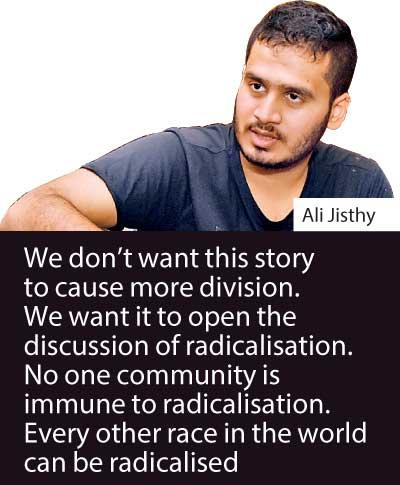 Witness reports stated that the mobs had come with trucks stacked with tyres. “One device they used was to set fire to these tyres and toss the burning tyres into the factory. How quickly these mobs regrouped from Minuwangoda town and headed for our factory which is some 15 minutes away is disturbing,” Ali stressed. “They knew that it was a Muslim-owned factory. It was very scary how organised this entire attack was. It wasn’t a random crowd going around breaking things. They had purpose when they thrashed and burned the place down.”
Witness reports stated that the mobs had come with trucks stacked with tyres. “One device they used was to set fire to these tyres and toss the burning tyres into the factory. How quickly these mobs regrouped from Minuwangoda town and headed for our factory which is some 15 minutes away is disturbing,” Ali stressed. “They knew that it was a Muslim-owned factory. It was very scary how organised this entire attack was. It wasn’t a random crowd going around breaking things. They had purpose when they thrashed and burned the place down.”
The management said that the Police was contacted immediately when news of the attack reached them. “Police arrived at the scene 15 minutes later, but were unable to handle it. It was 10 police officers against a violent mob of 200 people,” he elaborated.
Reports of the numbers vary, as Police reports indicate that a mob of about 500 people attacked the factory, according to Ali. However locals claimed that only 200 people were present. Given the chaotic situation, this disparity is understandable, he said.
"When the armed forces arrived at the scene at around 9.30 pm, they were able to deescalate the situation, according to the owners"
Accommodation for employees is provided to them on the first floor of the factory. While the mobs set fire to the goods and equipment on the ground floor, seven employees were trapped inside the building.
At the rear end of the factory is a woodland area into which several employees attempted to escape. Adjacent to the factory is another structure built for water tanks. Four employees climbed on to the water tank and several managed to escape into the woodland, where they hid under the shrubbery until safety was assured.
When the armed forces arrived at the scene at around 9.30 pm, they were able to deescalate the situation, according to the owners who had been in Colombo, unable to visit the site as curfew was imposed. “It was already too late. Three of our employees were still trapped between the plumes of smoke on one end and an angry mob on the other. They had to make a desperate call and jump out of a window, cling to a drainage pipe and climb down. Two managed to escape through this risky manoeuvre. The third employee unfortunately couldn’t grab on to the pipe and suffered a fall. The drop was 25 feet. He sustained a spine injury and wouldn’t be able to walk for two months. He’s currently undergoing treatment at the Gampaha Hospital.”
"The company estimates a loss of Rs. 700 million. The fire decimated the factory, machinery as well as its stocks"
Four employees were injured in this incident. Two of the employees present at the time were Sinhalese, while the others were Muslim. The management believes that the mobs were well aware of the building’s entry points. “They entered from the front left of the building and an entrance at the far right of the building, which is the entrance we commonly used. 5 or 6 containers worth of stock were stored at the factory, which immediately caught fire,” Ali said.
Asked about the much speculated Police inaction, the management said that the Police were overwhelmed by the crowds. “There’s only so much that the Police could do. The police arrived at the scene as fast as they could. Even after the Easter Attack, the Police visited our factory to ensure its safety. They did everything they could.”
During the efforts to douse the fire, which decimated the factory, the machinery as well as its stocks, the fire engines which were deployed to the venue, ran out of water. “The fire brigade asked us if they could use the water source of factory. Unfortunately there was no electricity for the water to be pumped,” he said. The company estimates a loss of Rs. 700 million.
On a final note, the management insisted that this unfortunate incident must serve as a platform to discuss and debate a most persistent issue. “We don’t want this story to cause more division. We want it to open the discussion of radicalisation. No one community is immune to radicalisation. Every other race in the world can be radicalised. We have laws against hate speech in this country. But what we need is for the laws to be applied to everyone, whether you are Muslim, Christian, Tamil or Sinhala. It should apply to a priest, politician or professional. Otherwise we can never move forward as a country.”
